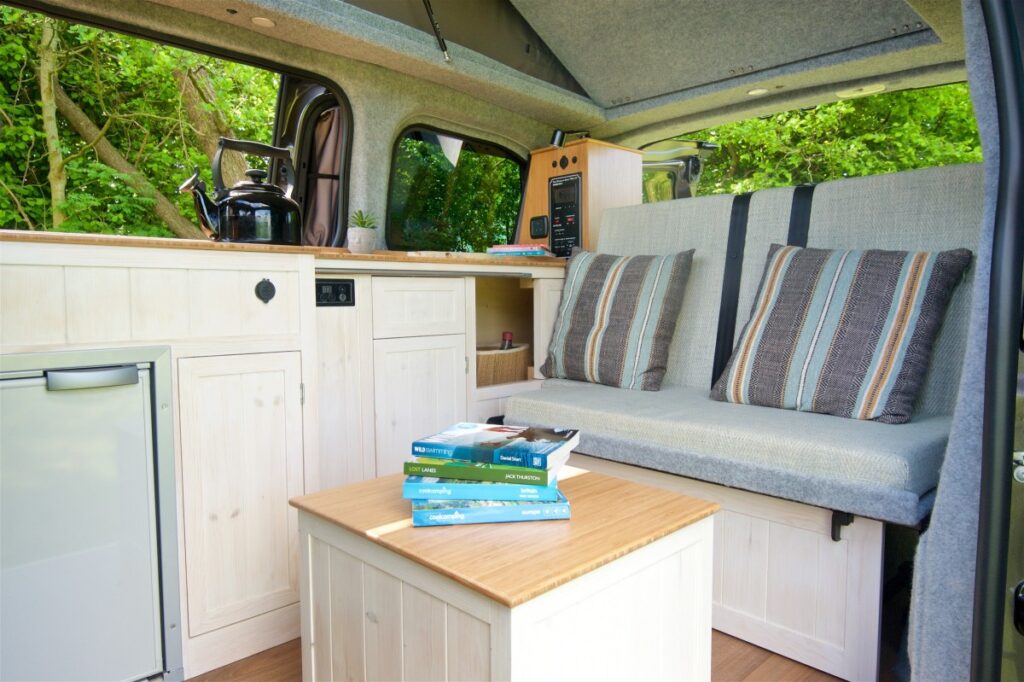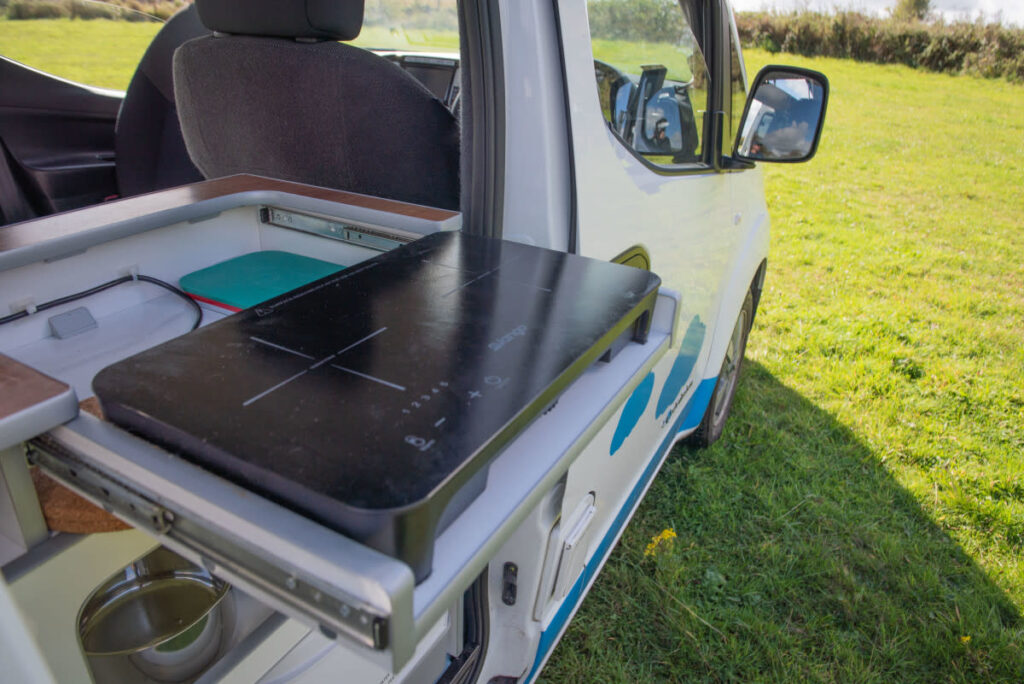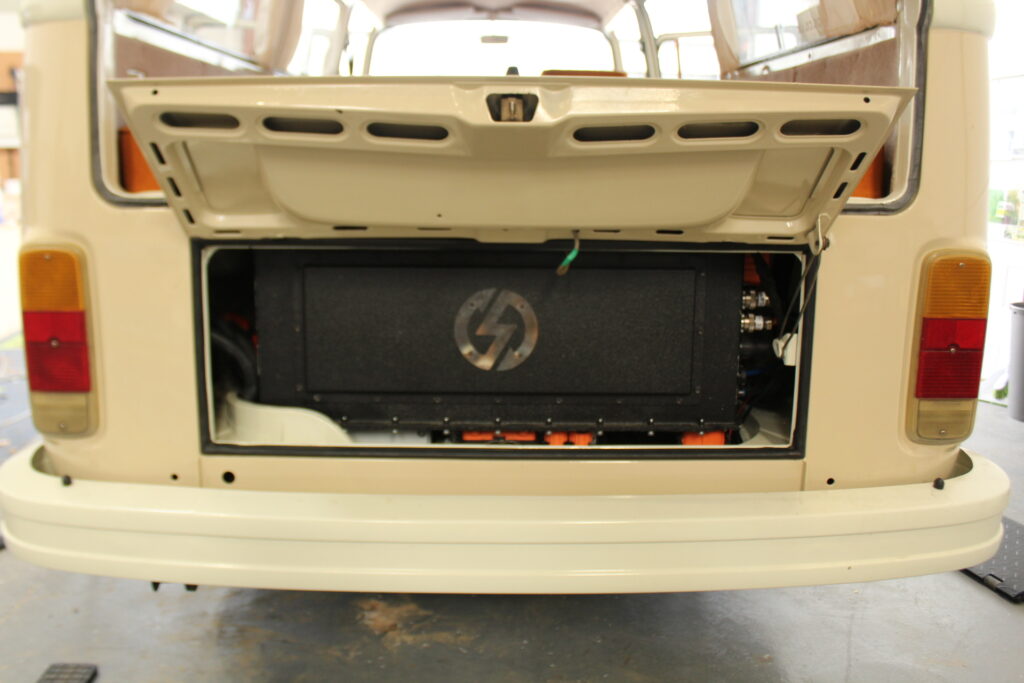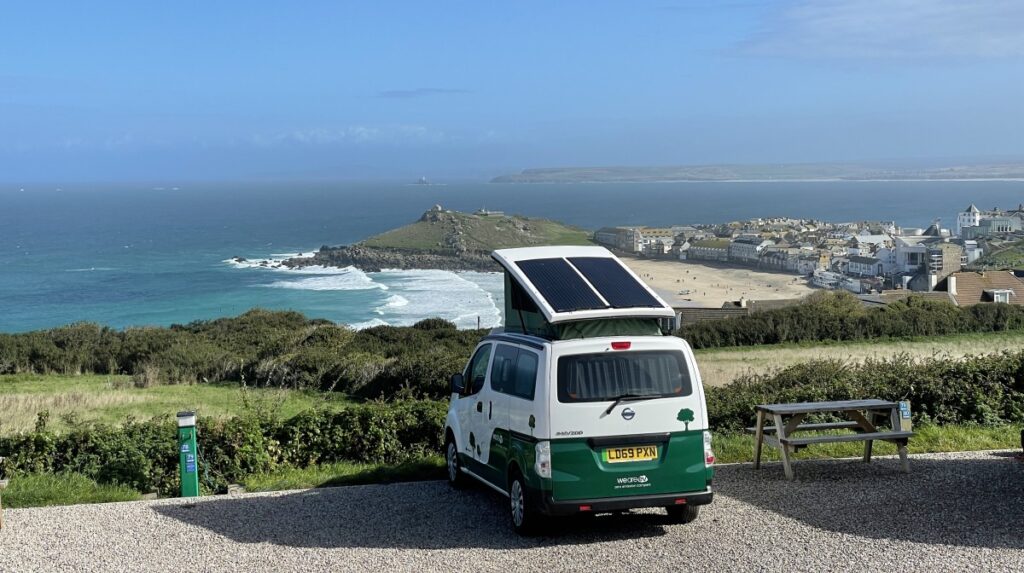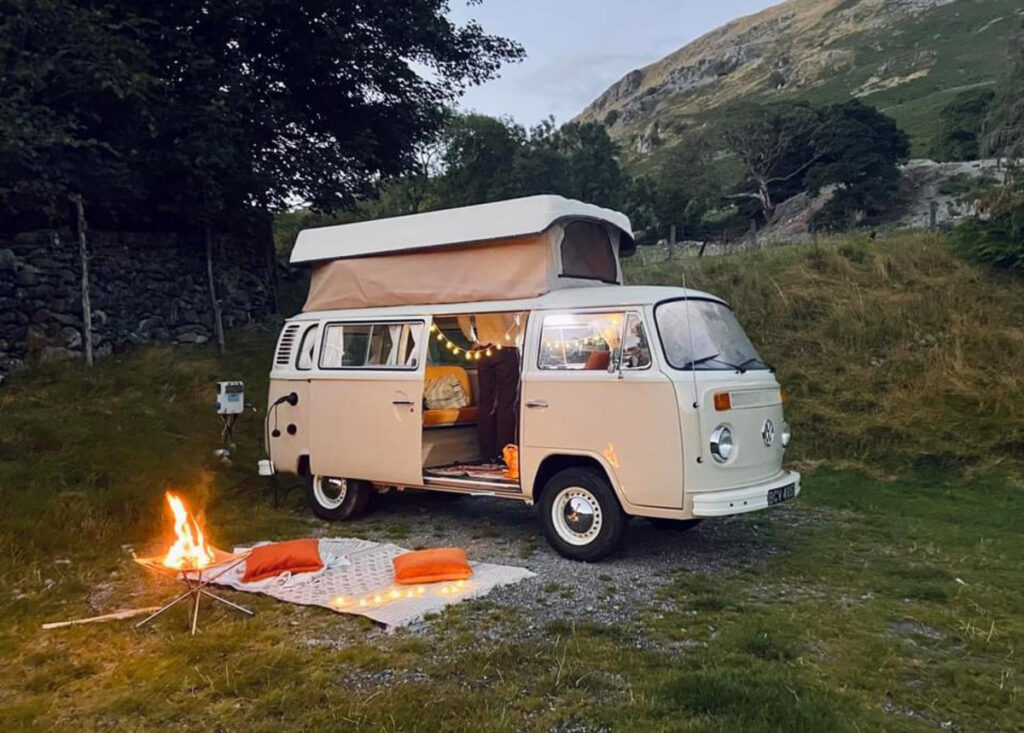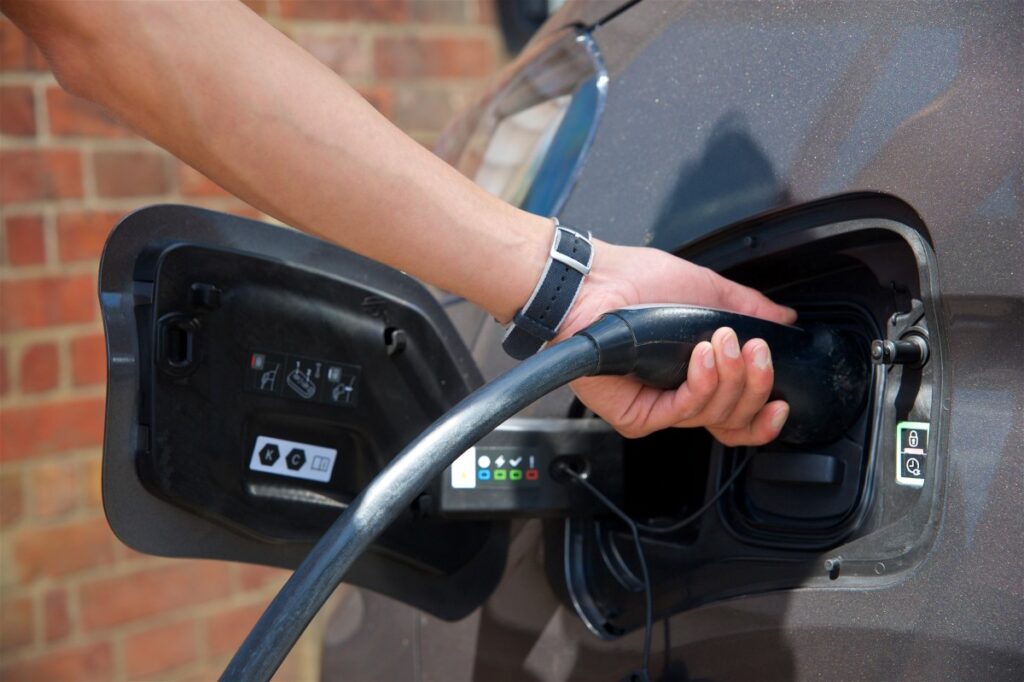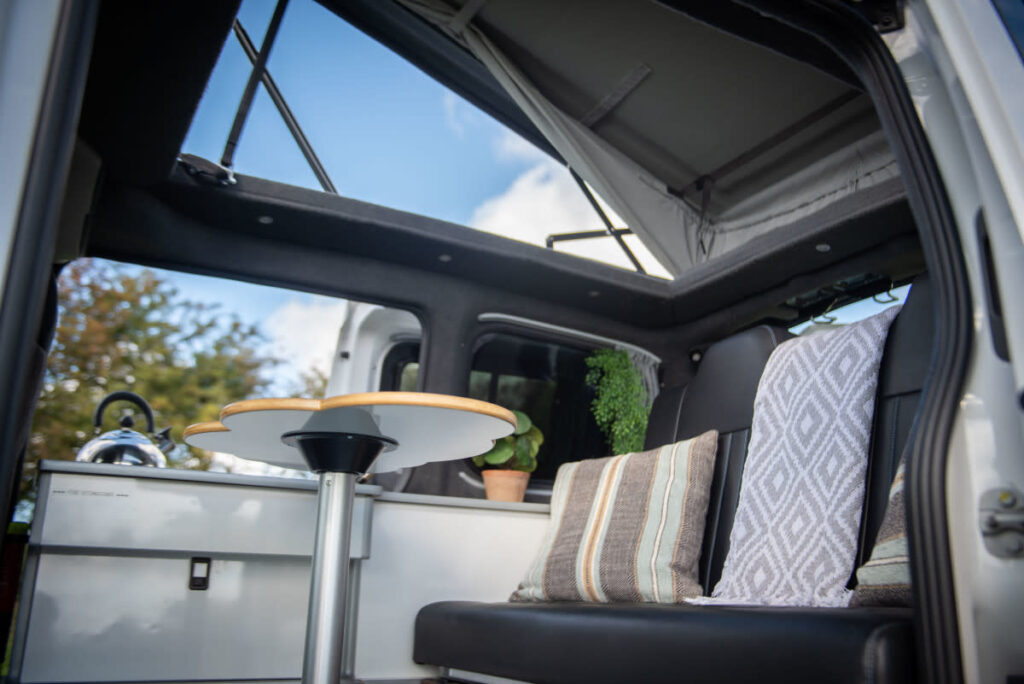Quirky Campers has committed to rapidly increasing the number of electric campervans available for hire from our platform. From 4 to 120 in the next 3 years.
Can campervans be 100% electric?
Yes! We already have a small but growing collection of 100% electric vans available for hire on our Electric Campervans page.
A diesel campervan adventure is a lower carbon option than an overseas holiday, but we dream of carbon-neutral journeys, silent engines and fresh air.
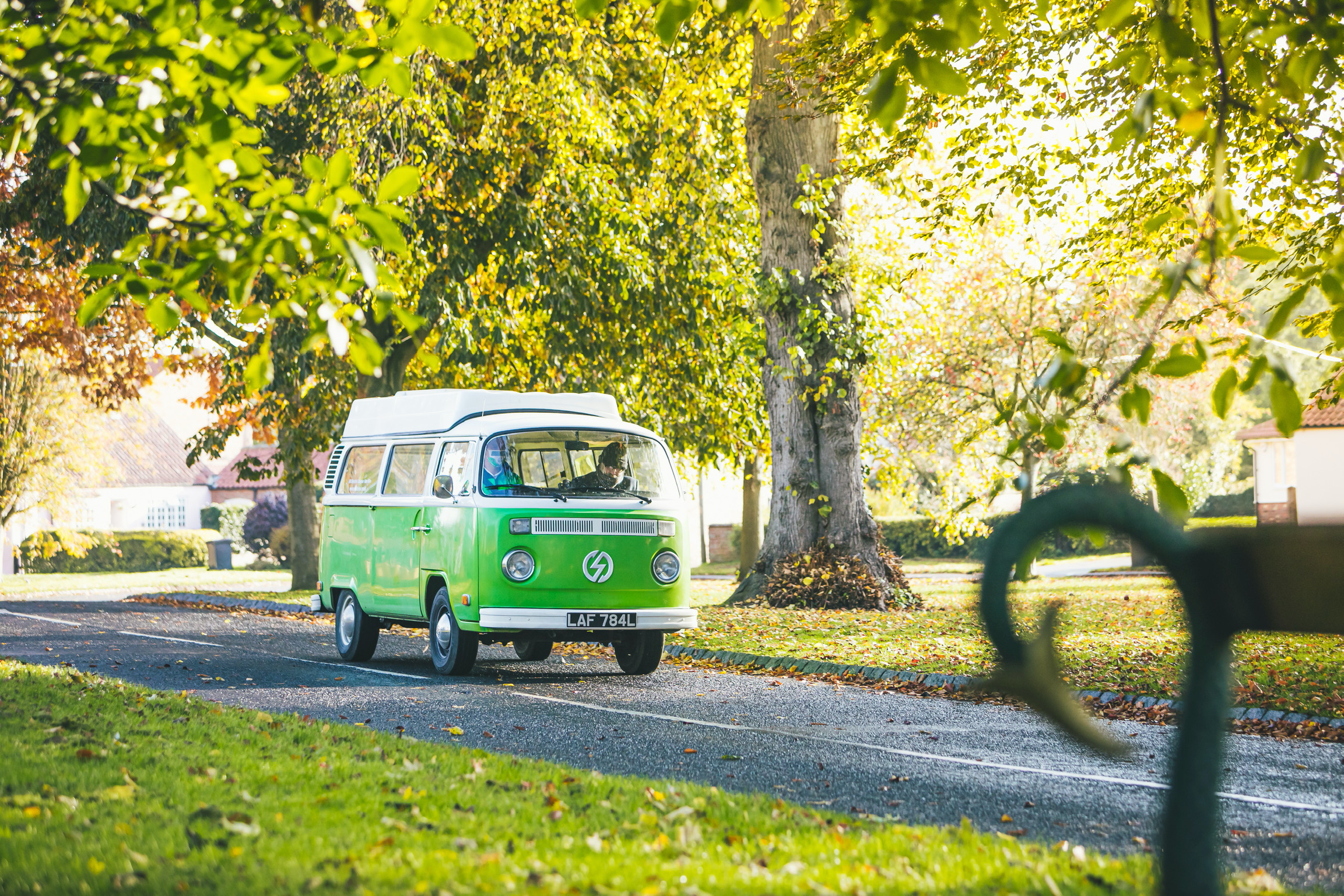
Does it work?
Yes, it really does! Things have moved on a lot in just the last couple of years to take this from an aspiration to a reality. The top concerns of anyone switching to an all-electric campervan are charging and range. We will be writing detailed posts on our blog on all these issues. Below are some basics:
Charging
There have been some much talked issues with the charging network in the UK but things are developing quickly and the real-life experience of our hiring customers has been very positive. One of the massive advantages of being in a campervan is that you have your whole home with you, so you can make dinner whilst you top up. The most used app for journey planning and finding charging points is Zap Map. If your vehicle has a rapid charger you can get back up to 80% charge in just 45 minutes.
Range
Range varies a lot by make and model but most new electric vans have a range of over 100 miles (some have as much as 200 miles in ideal conditions). The same make and model of vehicle might have multiple range options because they have different battery packs. Batteries are described in kilowatt hours (kWh) and typically the range will be two or three times the kWh of the vehicle. For example, 50 kWh will have a range of between 100 and 150 miles.
The range is dependent on the following:
- Size of the batteries (in kWh)
- Size of the vehicle
- Weight of the vehicle
- Outside temperature (battery output decreases when it’s cold)
- Driving style (fast acceleration uses more power)
- Speed (reducing your speed by 10mph can use up to 14% less energy)
- Climate control (heating or cooling the inside of the vehicle uses up power)


